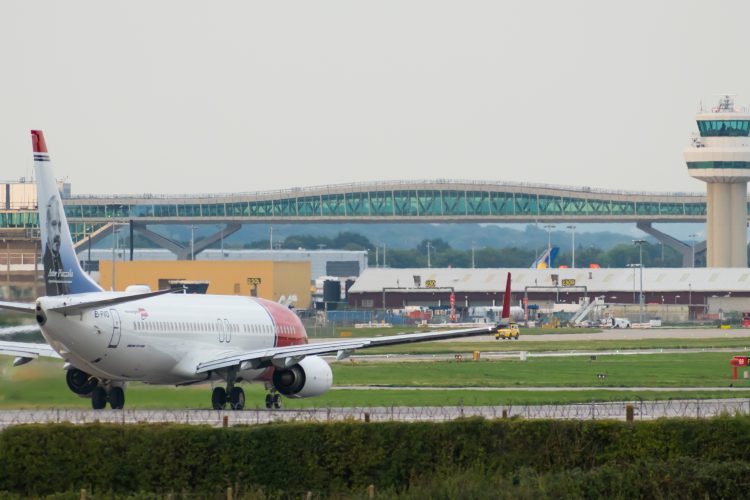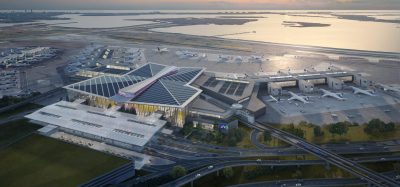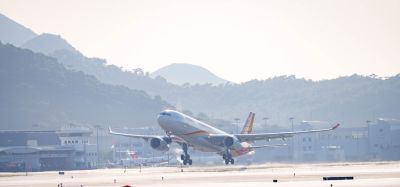Aviation Services UK: Airport capacity needs to be prioritised
- Like
- Digg
- Del
- Tumblr
- VKontakte
- Buffer
- Love This
- Odnoklassniki
- Meneame
- Blogger
- Amazon
- Yahoo Mail
- Gmail
- AOL
- Newsvine
- HackerNews
- Evernote
- MySpace
- Mail.ru
- Viadeo
- Line
- Comments
- Yummly
- SMS
- Viber
- Telegram
- Subscribe
- Skype
- Facebook Messenger
- Kakao
- LiveJournal
- Yammer
- Edgar
- Fintel
- Mix
- Instapaper
- Copy Link
Posted: 28 June 2024 | Emily Budgen | No comments yet
The trade association for ground services at airports, Aviation Services UK, have asked the next government to prioritise airport capacity.


The trade body representing ground services firms at airports, Aviation Services UK (ASUK), have said that the incoming government must grow passenger and cargo capacity at UK airports.
The UK economy depends on competition and connectivity in international markets. Aviation therefore must be integrated into a growth plan.
David Leighton FRSA, Chief Executive at ASUK, commented; “New infrastructure is urgently needed. Heathrow’s delayed expansion is directly holding back economic growth, as the loss of ad-hoc freighter slots demonstrates.
“Freight – whether moving by air, land or sea – is the lifeblood of our economy, but the arteries that carry that lifeblood have been clogging up for decades. This is most severe in aviation, where lack of capacity is biting hard.
“The industry’s shared commitment to decarbonisation, in part enabled by the adoption of Sustainable Aviation Fuel, underlines why it’s time to reinvigorate the case for sustainable airport expansion.”
The comments come as ASUK publishes its ‘Priorities for Government’.
Leighton says clarity is needed about plans for a 2040 Zero Emissions Airport target, adding that the shortage of charging infrastructure at airports must be addressed to accelerate investment in new electrified and hydrogen-powered ground services equipment. He urges the new government to ensure fees for infrastructure and power supplied by airports are set on a fair and transparent basis.
ASUK’s mission is to enable a thriving, safe, secure and sustainable UK aviation sector. Its members now handle around 75% of all UK flights.
Leighton added: “Against a backdrop of rising demand for air travel, lack of capacity will continue to present a significant challenge for any government that stresses the importance of growing the economy.”
“As long as capacity constraints endure, a protected pool of slots available for cargo-only flights is essential.
“The system of allocating slots is in need of urgent reform, and there is a compelling case for enhanced regulatory oversight to guard the strategic national interest.”
He points out that limited capacity is making the UK’s supply chains more vulnerable to disruption, which also reinforces the need for action to improve resilience.
According to their manifesto, “Labour’s first mission in government will be to grow our economy” and “flourishing international business is a vital part of [their] plan for growth.” However, aviation is mentioned only twice, whilst it appears in the Conservative party manifesto only three times.
Labour promises to “secure the aviation industry’s long-term future, including through promoting sustainable aviation fuels and encouraging airspace modernisation”. The Conservatives commit to “supporting growth and decarbonisation.”
The other parties say they would oppose airport expansion, though the Liberal Democrats say they would place “a moratorium on net airport expansion” and oppose the expansion of airports in the Southeast, including Heathrow. The Green party would “not allow more or bigger airports”.
The Reform manifesto (or ‘contract’) does not mention aviation at all.
Leighton concludes; “Achieving real economic growth demands a revival of bold ambition; let’s make being the world’s best-connected economy an explicit national policy objective.”
More Like This
Roof collapses at Indira Gandhi International Airport
North Korean balloons disrupt Incheon Airport
Canada’s Airports celebrate Airport Workers’ Day
Related topics
Airport development, Funding and finance, Ground handling, Regulation and Legislation

















